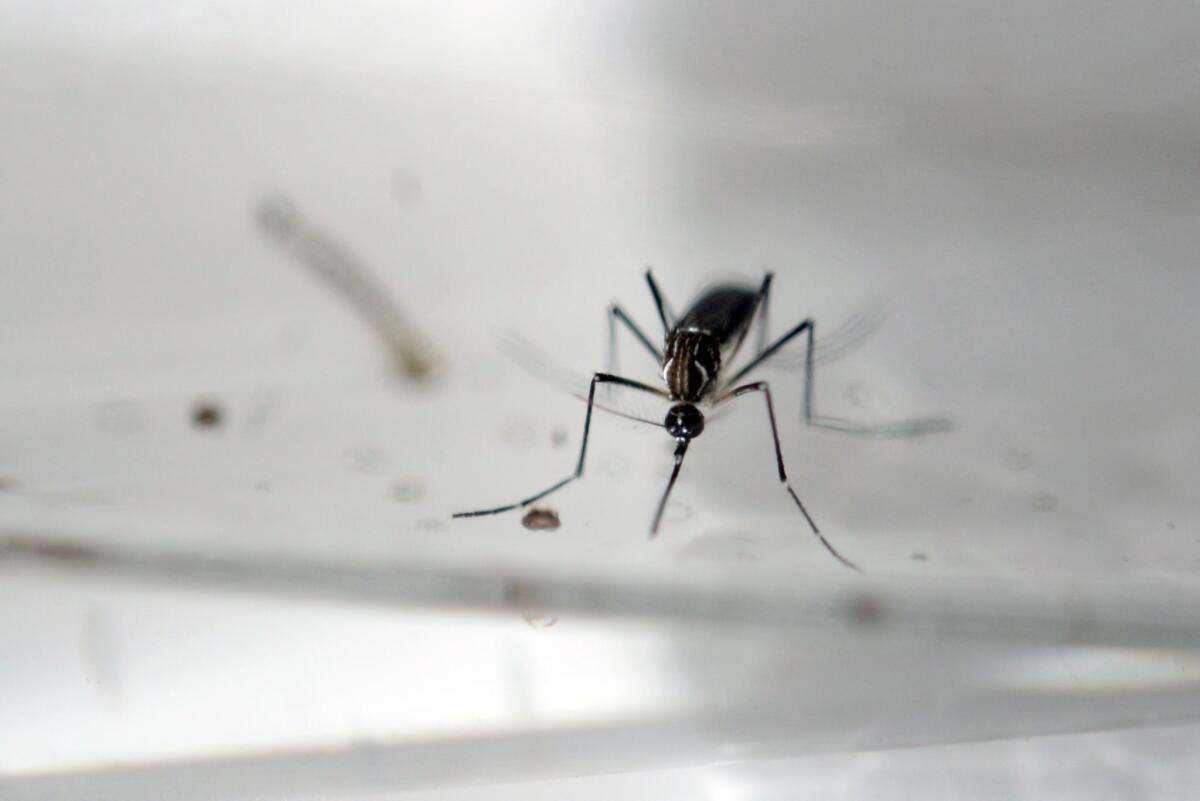Column: Because of Zika, pressure is building to delay the Rio Olympics

The spread of the Zika virus is an unavoidable reminder that disease outbreaks tend not to respect the geographical boundaries or calendars devised by human beings. Its rising prevalence in the teeming city of Rio de Janeiro has generated more consideration about delaying or moving the 2016 Rio Olympics, whose opening ceremony is scheduled for Aug. 5.
The latest and strongest call for a delay comes from Amir Attaran, associate professor of law and population health at the University of Ottawa.
Mass migration into the heart of an outbreak is a public health no-brainer.
— Amir Attaran, University of Ottawa
“Brazil’s Zika problem is inconveniently not ending,” Attaran writes in the Harvard Public Health Review. Not only is the virus “flourishing” in Rio, but evidence is mounting that its effects go beyond the pediatric microcephaly among children born to infected mothers, the manifestation that first brought it to public notice. Zika has now been associated with adult maladies such as Guillain-Barré syndrome and encephalomyelitis, which can be fatal. That means that the initial proposed countermeasure, which is that women expecting to become pregnant stay away, may not be enough.
Attaran also downplays expectations that Zika will be suppressed, if not eliminated, by Brazil’s winter weather, July through September. That means a heightened opportunity for the virus to hitchhike across the world via the roughly 500,000 tourists and visitors otherwise expected to come to Rio for the games. Once back home, “both local Aedes mosquitoes [the virus’s main carrier] and sexual transmission can establish new outbreaks,” Attaran writes.
His conclusion is stark. “Mass migration into the heart of an outbreak is a public health no-brainer. And given the choice between accelerating a dangerous new disease or not — for it is impossible that Games will slow Zika down — the answer should be a no-brainer for the Olympic organizers too. Putting sentimentality aside, clearly the Rio 2016 Games must not proceed.”
The difficulties and consequences of delaying or moving the Olympics also are pretty stark, which is why the idea of doing so is spreading only slowly ... thus far.
Brazil expects Olympic tourists to spend as much as $1 billion during the two weeks of the Games, and that’s not counting the spillover glow from a successful hosting of the first Olympics in South America. When Brazil won the Games in 2009, it looked ahead to placing its burgeoning economy on display. The luster has since worn off, but this is still expected to be a landmark cultural and economic event.
Then there are the complexities of rescheduling events in 28 international sports on short notice, including the disruptions of training routines and championship calendars. And finding solutions to the overarching questions of whither, and when, the Games should go. Nicholas Bagley of the University of Michigan and theincidentaleconomist blog says he’s not persuaded of the need ... “not yet.” But he wraps up the “hard question” thusly:
“What would it take to persuade you? More evidence on fetal harm (there’s already a lot)? Evidence about how much more quickly the Olympics will lead Zika to spread? Some sense of how fast we’re likely to develop a vaccine or antiviral? A better understanding of whether we can cope with Zika if it becomes endemic? And ... how much uncertainty are you willing to tolerate?”
There’s no longer any question that Zika is a dangerous disease or that the strain prevalent in Brazil is a new variant. A study published in the New England Journal of Medicine determined that “infection during pregnancy appears to be associated with grave outcomes, including fetal death, placental insufficiency, fetal growth restriction, and [central nervous system] injury.”
As Attaran points out, this wouldn’t be the first time an Olympics was relocated, though not on such short notice. The International Olympics Committee had to find a new site for the 1976 Winter Games after voters in the original host city, Denver, put the kibosh on the project. But that was in 1972, leaving plenty of time. (The 1976 Games ended up in Innsbruck, Austria, which had hosted them 12 years earlier.) Still, facilities from recent Games in London and Beijing, among other venues, presumably could be made available on short notice.
Zika’s inexorable march leaves scarcely more than two months to make a decision. Organizers plainly are hoping they won’t have to make a change, and at this moment, whether they’ll have to is still debatable. But it may not remain so much longer. The IOC isn’t doing anyone any good by pretending, as IOC member Dick Pound of Canada did in February, that Zika is “a manufactured crisis” for anyone but pregnant women. As Attaran rightly asks: “Manufactured by whom?”
The IOC should start thinking candidly, and publicly, about the alternatives to bringing a half-million visitors into an epidemic zone.
Keep up to date with Michael Hiltzik. Follow @hiltzikm on Twitter, see his Facebook page, or email michael.hiltzik@latimes.com.
Return to Michael Hiltzik’s blog.
More to Read
Go beyond the scoreboard
Get the latest on L.A.'s teams in the daily Sports Report newsletter.
You may occasionally receive promotional content from the Los Angeles Times.





